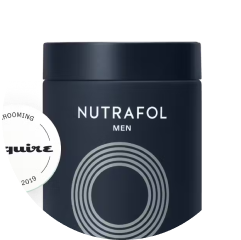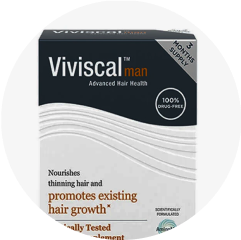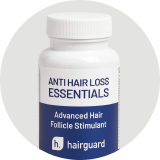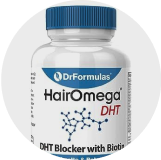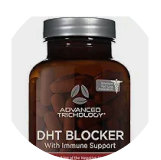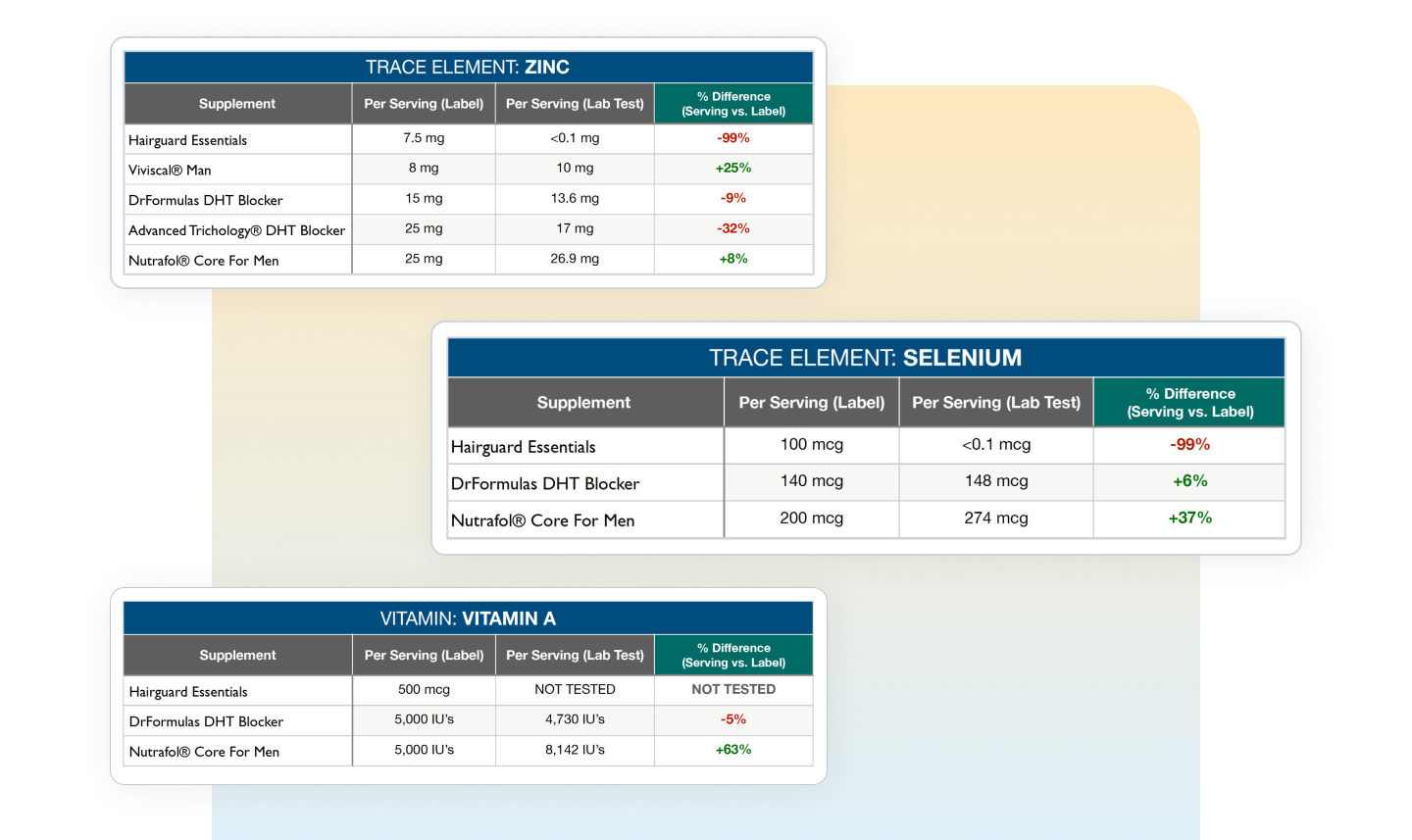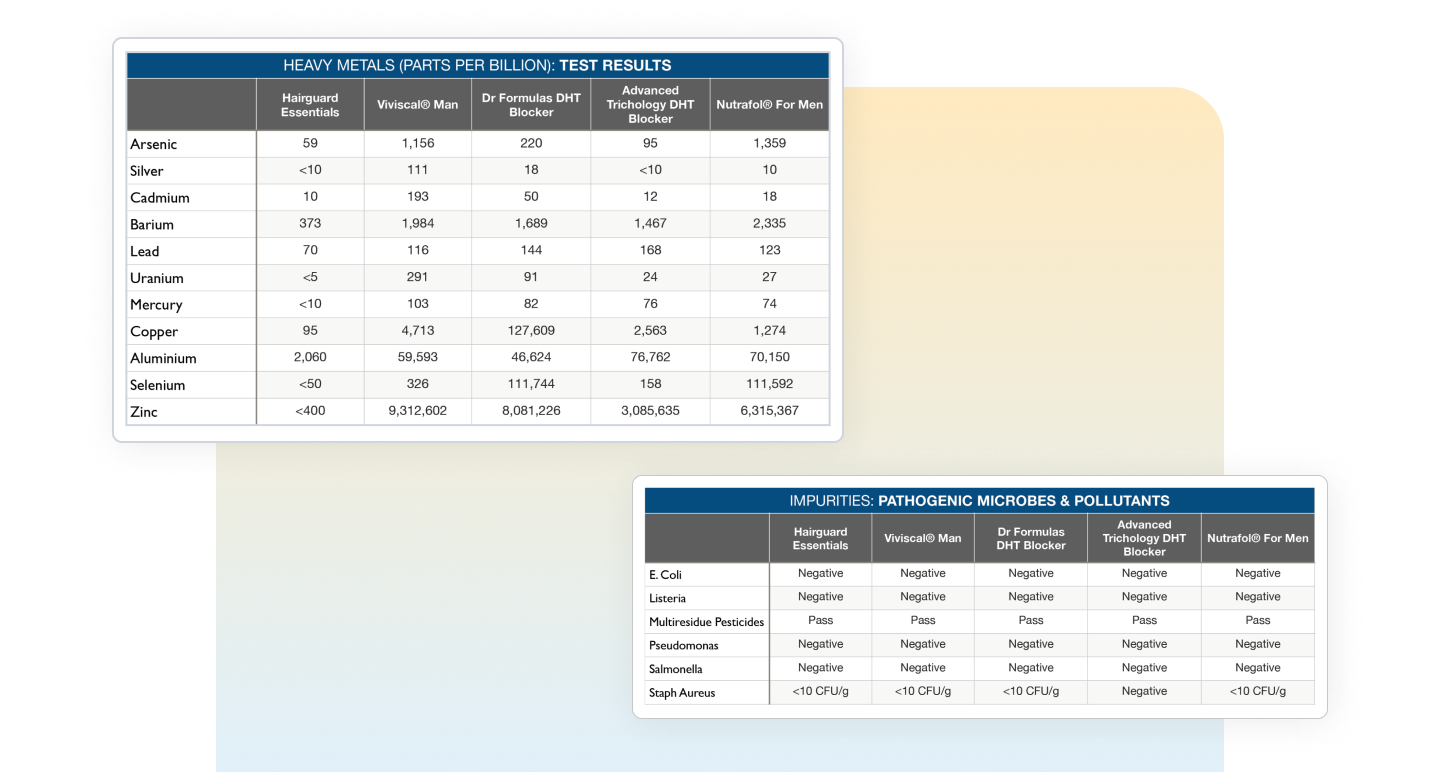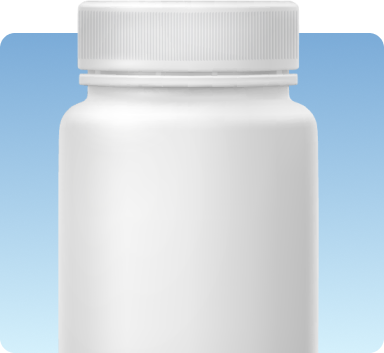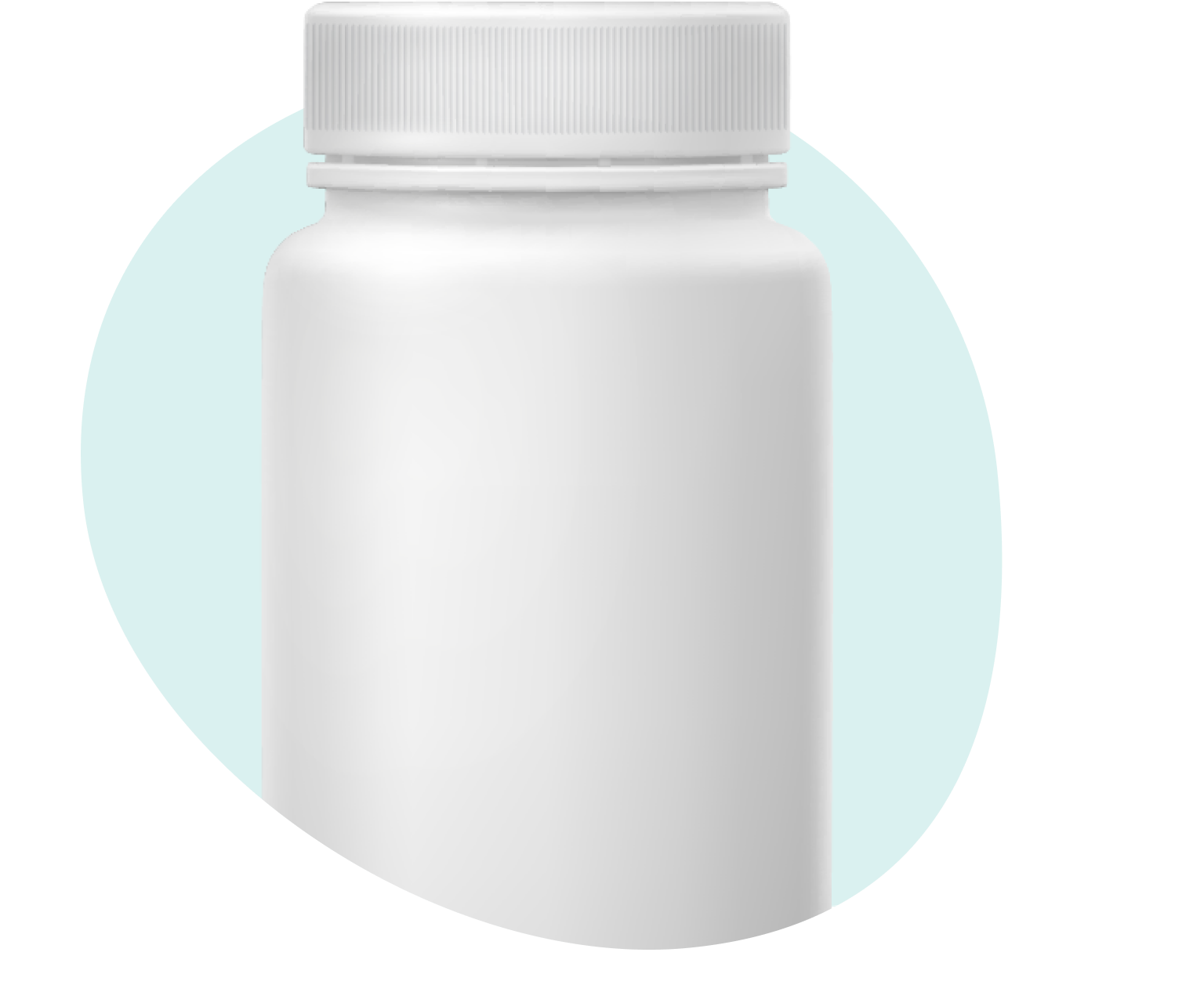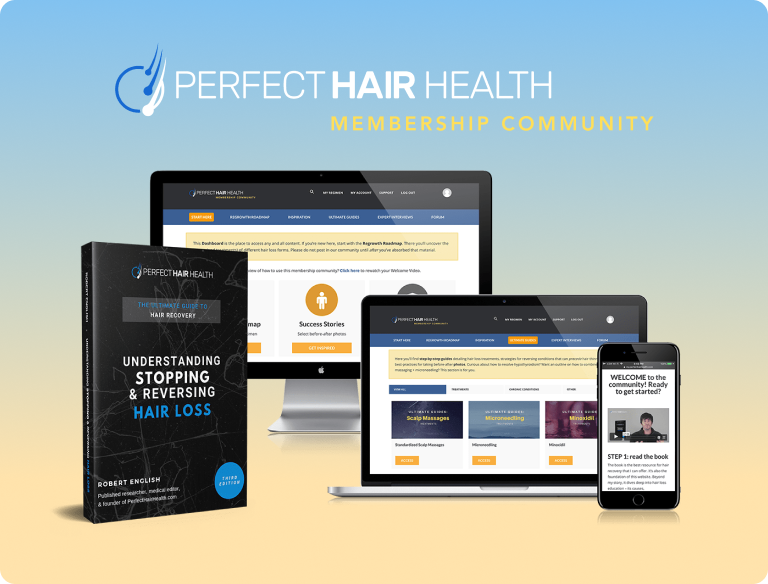- About
- Mission Statement
Education. Evidence. Regrowth.
- Education.
Prioritize knowledge. Make better choices.
- Evidence.
Sort good studies from the bad.
- Regrowth.
Get bigger hair gains.
Team MembersPhD's, resarchers, & consumer advocates.
- Rob English
Founder, researcher, & consumer advocate
- Research Team
Our team of PhD’s, researchers, & more
Editorial PolicyDiscover how we conduct our research.
ContactHave questions? Contact us.
Before-Afters- Transformation Photos
Our library of before-after photos.
- — Jenna, 31, U.S.A.
I have attached my before and afters of my progress since joining this group...
- — Tom, 30, U.K.
I’m convinced I’ve recovered to probably the hairline I had 3 years ago. Super stoked…
- — Rabih, 30’s, U.S.A.
My friends actually told me, “Your hairline improved. Your hair looks thicker...
- — RDB, 35, New York, U.S.A.
I also feel my hair has a different texture to it now…
- — Aayush, 20’s, Boston, MA
Firstly thank you for your work in this field. I am immensely grateful that...
- — Ben M., U.S.A
I just wanted to thank you for all your research, for introducing me to this method...
- — Raul, 50, Spain
To be honest I am having fun with all this and I still don’t know how much...
- — Lisa, 52, U.S.
I see a massive amount of regrowth that is all less than about 8 cm long...
Client Testimonials150+ member experiences.
Scroll Down
Popular Treatments- Treatments
Popular treatments. But do they work?
- Finasteride
- Oral
- Topical
- Dutasteride
- Oral
- Topical
- Mesotherapy
- Minoxidil
- Oral
- Topical
- Ketoconazole
- Shampoo
- Topical
- Low-Level Laser Therapy
- Therapy
- Microneedling
- Therapy
- Platelet-Rich Plasma Therapy (PRP)
- Therapy
- Scalp Massages
- Therapy
More
IngredientsTop-selling ingredients, quantified.
- Saw Palmetto
- Redensyl
- Melatonin
- Caffeine
- Biotin
- Rosemary Oil
- Lilac Stem Cells
- Hydrolyzed Wheat Protein
- Sodium Lauryl Sulfate
More
ProductsThe truth about hair loss "best sellers".
- Minoxidil Tablets
Xyon Health
- Finasteride
Strut Health
- Hair Growth Supplements
Happy Head
- REVITA Tablets for Hair Growth Support
DS Laboratories
- FoliGROWTH Ultimate Hair Neutraceutical
Advanced Trichology
- Enhance Hair Density Serum
Fully Vital
- Topical Finasteride and Minoxidil
Xyon Health
- HairOmega Foaming Hair Growth Serum
DrFormulas
- Bio-Cleansing Shampoo
Revivogen MD
more
Key MetricsStandardized rubrics to evaluate all treatments.
- Evidence Quality
Is this treatment well studied?
- Regrowth Potential
How much regrowth can you expect?
- Long-Term Viability
Is this treatment safe & sustainable?
Free Research- Free Resources
Apps, tools, guides, freebies, & more.
- Free CalculatorTopical Finasteride Calculator
- Free Interactive GuideInteractive Guide: What Causes Hair Loss?
- Free ResourceFree Guide: Standardized Scalp Massages
- Free Course7-Day Hair Loss Email Course
- Free DatabaseIngredients Database
- Free Interactive GuideInteractive Guide: Hair Loss Disorders
- Free DatabaseTreatment Guides
- Free Lab TestsProduct Lab Tests: Purity & Potency
- Free Video & Write-upEvidence Quality Masterclass
- Free Interactive GuideDermatology Appointment Guide
More
Articles100+ free articles.
-
Hims Hair Growth Reviews: The Pros, Cons, and Real Results
-
Topical Finasteride Before and After: Real Case Studies
-
How to Reduce the Risk of Finasteride Side Effects
-
10 Best DHT-Blocking Shampoos
-
Best Minoxidil for Men: Top Picks for 2026
-
7 Best Oils for Hair Growth
-
Switching From Finasteride to Dutasteride
-
Best Minoxidil for Women: Top 6 Brands of 2026
PublicationsOur team’s peer-reviewed studies.
- Microneedling and Its Use in Hair Loss Disorders: A Systematic Review
- Use of Botulinum Toxin for Androgenic Alopecia: A Systematic Review
- Conflicting Reports Regarding the Histopathological Features of Androgenic Alopecia
- Self-Assessments of Standardized Scalp Massages for Androgenic Alopecia: Survey Results
- A Hypothetical Pathogenesis Model For Androgenic Alopecia:Clarifying The Dihydrotestosterone Paradox And Rate-Limiting Recovery Factors
Menu- AboutAbout
- Mission Statement
Education. Evidence. Regrowth.
- Team Members
PhD's, resarchers, & consumer advocates.
- Editorial Policy
Discover how we conduct our research.
- Contact
Have questions? Contact us.
- Before-Afters
Before-Afters- Transformation Photos
Our library of before-after photos.
- Client Testimonials
Read the experiences of members
Before-Afters/ Client Testimonials- Popular Treatments
-
Supplement Report: Overview
We tested the following supplements for heavy metals, pathogens, and labeling claims:
Nutrafol®
Core For Men
Viviscal®
Man
Hairguard
Anti-Hair Loss Essentials
DrFormulas
DHT Blocker
Advanced Trichology
DHT Blocker
Not all supplements performed well. Some were missing ingredients; others had too many
ingredients. And during our investigation, we also discovered half-truths and exaggerated claims
about these supplements and their actual effectiveness on hair growth.This report uncovers the details. We’ll reveal (1) the results of our lab tests, (2) marketing claims
versus reality: what manufacturers say versus what the clinical studies show, and (3) why, when it
comes to fighting hair loss, nutritional supplements are rarely necessary.Necessary disclaimer about laboratory testing
When we purchased these supplements from the manufacturers, we shipped them straight to third-party laboratories. In other words, we never touched the products ourselves. Moreover, we only partnered with labs that were ISO 17025:2005-certified. This is the highest certification for quality standards in the environmental laboratory industry, because we wanted the most accurate results. As always, test results may vary based on a supplement’s lot number and/or the testing methodologies employed. As such, these results are only representative of the supplement bottles that we purchased.
Why bother testing hair loss supplements?
The test results speak for themselves. And regardless of whether we end up working together in the future, I wanted to share this resource with you… so that you can start making more informed decisions about the products you buy. After all, the best way to fight hair loss isn’t through product purchases; it’s through education.
This is the position millions of other hair loss sufferers find themselves in. And like many others, this led me to start exploring other treatment options: minoxidil (Rogaine®), low-level laser therapy, and natural products (supplements, topicals, shampoos, and devices).
Over a six-year period, I ended up spending $10,000 on hair loss products… all without any results. Moreover, the bulk of that money was spent on supplements. Years later, after I’d found a protocol that worked for me, I started perfecthairhealth.com to showcase the evidence supporting the methods and my progress photos. Over the next five years, I started working with other hair loss sufferers; I focused on getting them results and without all of the wasted time, money, and trial-and-error.
Fast-forward to today: I’m a medical editor. I’ve published two peer-reviewed papers about androgenic alopecia. I’m on the editorial board of a top-ranking dermatology journal. I’ve helped hundreds of men and women improve their hair, and on their terms – with or without drugs. I’ve got the photos and testimonials to prove it.
By far, the place where I see hair loss sufferers waste the most money is with nutritional supplements. The reality is that hair loss supplements are (1) expensive, (2), unregulated, and (3) not well-supported by clinical studies. And the best way to illustrate this is to:
1.Put them to the test. Show you what’s on the label versus what’s inside each supplement, and…
2.Debunk their claims. Reveal how marketers misrepresent science to sell you products you don’t need.
So, we did the work for you. We launched and investigation into five top-selling hair loss supplements. Then we spent $5,000 testing them for impurities, heavy metals, and labeling accuracies.
The test results speak for themselves. And regardless of whether we end up working together in the future, I wanted to share this resource with you… so that you can start making more informed decisions about the products you buy. After all, the best way to fight hair loss isn’t through product purchases; it’s through education.
Rob English
Medical editor and founder of Perfect Hair Health
Supplement Results: Labeling Accuracy
Almost all of the supplements that we purchased contained vitamin A, zinc, and selenium. So, we tested to see if the amount listed on each label matched what was inside each serving.
Note: +/- 15% differences in labeling claims are common; these don’t imply a quality control problem. But, bigger differences are concerning. Keep this mind when interpreting results.
Supplement Results: Heavy Metals, Impurities, & Pesticides
Using mass spectrometry, we tested each supplement for the presence of 24 heavy metals: arsenic, uranium, mercury, and more. Using other methods, we then tested for the presence of pathogenic microorganisms and chemical pesticides.
Encouragingly, all supplements contained negligible amounts of problematic trace element. Here’s an abbreviated heavy metals report, along with the impurities testing results.
Test Results: Key Takeaways
Of the five supplements we tested, all of them passed safety tests for heavy metals, pathogenic microbes, and pesticide residues. In other words, these supplements appear to be safe to ingest at the recommended dosages. That’s great news.
At the same time, not all supplements could meet their labeling claims.
Hairguard and Advanced Trichology fell short of their labeling claims for zinc and/or selenium. Nutrafol® and Viviscal® surpassed their labeling claims for zinc, selenium, and/or vitamin A. But that doesn’t make them any better (we’ll reveal why later).
Now, these results might simply be due to improper mixing for supplement batches. They might also be the due to a manufacturer changing its ingredients but forgetting to update a supplement’s label… In either case, it doesn’t matter. The findings reveal just how unregulated the supplement industry is… and that we might not be getting the ingredients we’re paying for.
The test results speak for themselves. And regardless of whether we end up working together in the future, I wanted to share this resource with you… so that you can start making more informed decisions about the products you buy. After all, the best way to fight hair loss isn’t through product purchases; it’s through education.
Labeling inaccuracies only scratch the surface
It’s one thing to improperly label a product’s ingredients. It’s another to intentionally mislead consumers into thinking that the science supporting the use of vitamins and minerals for hair growth is more compelling than it actually is.
This is what supplement sellers do. So, we’re exposing it. Below we’ve spotlighted three popular supplement ingredients – biotin, vitamin A, and selenium – and compared the claims made by manufacturers versus what the science really says.
Now, these results might simply be due to improper mixing for supplement batches. They might also be the due to a manufacturer changing its ingredients but forgetting to update a supplement’s label… In either case, it doesn’t matter. The findings reveal just how unregulated the supplement industry is… and that we might not be getting the ingredients we’re paying for.
The test results speak for themselves. And regardless of whether we end up working together in the future, I wanted to share this resource with you… so that you can start making more informed decisions about the products you buy. After all, the best way to fight hair loss isn’t through product purchases; it’s through education.
Biotin
Example 1 Biotin
Biotin is a vitamin. It plays a role in energy production, brain health, and immunity. Marketers also claim that it’s critical for hair health. Unfortunately, this is mostly only true in severe biotin deficiencies – which are rare in the developed world.
What marketers say: “Biotin is a building block of healthy hair. We need high levels of biotin to help reduce dryness, breakage, and hair shedding. Studies show that a biotin deficiency is a key driver of hair loss in women.”1
What the research says: Nearly all studies showing that biotin helps to regrow hair were done on children with rare diseases or genetic mutations that severely impaired biotin absorption.2 These forms of hair loss are rare, so the results don’t apply to most hair loss sufferers. In fact, clinical studies show no difference in biotin levels between those with and without common forms of hair loss.3
VIT. A
Example 2 VIT. A
Vitamin A helps protect the skin against free-radical damage. Many marketers cite hair loss studies on malnourished children as evidence for the need to supplement with vitamin A. But these studies are disingenuous. The truth is that vitamin A is harmful in high dosages – and even at the levels found in hair loss supplements.
What marketers say: “Vitamin A helps reduce scalp dryness, unclog sebaceous glands, and fight hair loss. Studies show that low vitamin A can cause hair loss,4 which is why supplementation is key.”
What the research says: These “studies” are just case reports of malnourished people.4 In the developed world, vitamin A deficiencies bad enough to cause hair loss are nearly nonexistent.2 In fact, in one mouse study, a low-vitamin A diet actually delayed hair loss onset.5 A normal diet provides more than enough vitamin A for the overwhelming majority of people, making supplementation unnecessary. In many cases, supplementation is actually dangerous.Potential dangers: High dosages of vitamin A (as retinol) can cause hair loss. Just see the side effects reported from synthetic vitamin A drugs like Accutane®.6 Moreover, supplementing with vitamin A (as retinyl palmitate or beta carotene) has been linked to an increased risk of cancer and all-cause mortality, respectively.7 There’s no need for most people in developed world to supplement with it – as the risks tend to outweigh the benefits. Therefore, “more” isn’t always better.
Selenium
Example 3 Selenium
Selenium is a trace element. It helps support our thyroid and the production of antioxidants. It’s also a popular ingredient inside hair loss supplements.
What marketers say: “Studies show that selenium deficiencies contribute to hair loss.8 If you aren’t supplementing, you’re not covering your bases.”
What the research says: Hair loss from a selenium deficiency is so rare that it’s generally only observed in rural pockets of Tibet, China, and Siberia – where the soil is nearly devoid of selenium.5 The developed world doesn’t face this problem, so supplementation is largely unnecessary… and sometimes dangerous.
Potential dangers: High dosages of vitamin A (as retinol) can cause hair loss. Just see the side effects reported from synthetic vitamin A drugs like Accutane®.6 Moreover, supplementing with vitamin A (as retinyl palmitate or beta carotene) has been linked to an increased risk of cancer and all-cause mortality, respectively.7 There’s no need for most people in developed world to supplement with it – as the risks tend to outweigh the benefits. Therefore, “more” isn’t always better.
The Bottom Line?
Unless we have a rare genetic disease, a chronic condition, or we’re severely malnourished, then the studies supporting biotin, vitamin A, and selenium supplements for hair growth don’t apply to us.
The populations in these studies face devastating circumstances: extreme nutrient deficiencies due to bad genes, chronic disease, and lacking access to basic nutrition. The reality? Most people who can afford to buy supplements don’t face these issues, so they won’t benefit from taking them.
Moreover, “natural” ingredients aren’t always safe! Studies have linked supplementing with vitamin A, vitamin E, selenium, and/or iodine to an increased risk of certain cancers, all-cause mortality, and ironically, hair loss itself. Supplement sellers don’t tell us this side of the story; they only want to present evidence that favors the sale of their products.
Now, this doesn’t mean supplementation is always useless. There are cases where it can help. And to be clear – this report shouldn’t deter you from seeking natural approaches to fighting hair loss. After all, I’ve personally seen improvements to my own hair through natural interventions.
Rather, this report is just to show you that when it comes to reversing hair loss, too many people buy products that are well marketed, but scientifically baseless. That’s a problem. It needs to stop.
Want To Stop Wasting Money?
First, stop reading random resources online about hair loss – i.e., Reddit’s Tressless, websites selling “natural” products, or websites trying to “prescribe” you hair loss drugs. These companies bias their information to favor the products they sell, thereby selling you short of the facts.
Second, take the time to educate yourself about hair loss science. Take the time to uncover which causes apply to you and which don’t. Take the time to learn the evidence behind treatments – natural or conventional – so that you can stop taking missteps… and start a path toward regrowth.
Second, take the time to educate yourself about hair loss science. Take the time to uncover which causes apply to you and which don’t. Take the time to learn the evidence behind treatments – natural or conventional – so that you can stop taking missteps… and start a path toward regrowth.
Ready to stop wasting time, money, and hair?
It all starts with education and hands-on support. Access our entire library of hair loss courses, product reviews, expert interviews, success stories, and more inside our Membership Community.
The Perfect Hair Health Membership Community is the ultimate resource center for hair loss sufferers.
It’s a membership 100% dedicated to hair recovery.
It’s packed with in-depth courses, member case studies, regrowth success stories, ultimate guides, expert interviews, and educational resources on everything you need to maximize your chances of hair regrowth.
It’s all built around a community of supportive, like-minded hair loss sufferers committed to learning, taking action, and helping each other succeed.
Our hundreds of members enjoy access to unbiased hair loss information, regrowth regimens tailored to them, and one-on-one support.
As a result, they get to bypass years of trial-and-error, fast-track themselves to protocols that actually work, and save thousands of dollars in the long-run – all by avoiding scam hair loss products.
Natural. Conventional. It doesn’t matter. There are evidence-based pathways to hair recovery for both approaches. You just need to be made aware of them – so you can stop wasting time and start achieving lasting hair regrowth.
If you’re ready to learn more (and see our success stories for proof)…
Click the link right here.
You can try the membership risk-free (there’s a money-back guarantee).
Scientific References
Selling nutritional supplements for hair loss
- Trüeb RM. Serum Biotin Levels in Women Complaining of Hair Loss.Int J Trichology. 2016;8(2):73-77. doi:10.4103/0974-7753.188040
- Almohanna HM, Ahmed AA, Tsatalis JP, Tosti A. The Role of Vitamins and Minerals in Hair Loss: A Review. Dermatol Ther (Heidelb). 2019;9(1):51-70. doi:10.1007/s13555-018-0278-6
- Abdel Rahman SH, Mohammed Salem R, Hassan Sabry J. Biotin Deficiency in Telogen Effluvium: Fact or Fiction?. J Clin Aesthet Dermatol. 2020;13(3):37-40.
- Di Stefani A, Orlandi A, Chimenti S, Bianchi L. Phrynoderma: a cutaneous sign of an inadequate diet. CMAJ. 2007;177(8):855-856. doi:10.1503/cmaj.070086
- Guo, Emily L, and Rajani Katta. “Diet and hair loss: effects of nutrient deficiency and supplement use.” Dermatology practical & conceptual 7,1 1-10. 31 Jan. 2017, doi:10.5826/dpc.0701a01
- Kmieć ML, Pajor A, Broniarczyk-Dyła G. Evaluation of biophysical skin parameters and assessment of hair growth in patients with acne treated with isotretinoin. Postepy Dermatol Alergol. 2013;30(6):343-349. doi:10.5114/pdia.2013.39432
- Schwingshackl L, Boeing H, Stelmach-Mardas M, et al. Dietary Supplements and Risk of Cause-Specific Death, Cardiovascular Disease, and Cancer: A Systematic Review and Meta-Analysis of Primary Prevention Trials. Adv Nutr. 2017;8(1):27-39. Published 2017 Jan 17. doi:10.3945/an.116.013516
- Goldberg LJ, Lenzy Y. Nutrition and hair. Clin Dermatol. 2010;28(4):412-419. doi:10.1016/j.clindermatol.2010.03.038
- Kristal AR, Darke AK, Morris JS, et al. Baseline selenium status and effects of selenium and vitamin e supplementation on prostate cancer risk. J Natl Cancer Inst. 2014;106(3):djt456. doi:10.1093/jnci/djt456
- MacFarquhar JK, Broussard DL, Melstrom P, et al. Acute selenium toxicity associated with a dietary supplement. Arch Intern Med. 2010;170(3):256-261. doi:10.1001/archinternmed.2009.495
Stop guessing which hair loss treatments
actually workInstead, just read our cheat sheet
You’ll get the facts on nine “natural” and “conventional” hair loss treatments: how they work, how much hair they’ll regrow, their limitations, and what their marketers don’t want you know.
- Mission Statement
 Scroll Down
Scroll Down